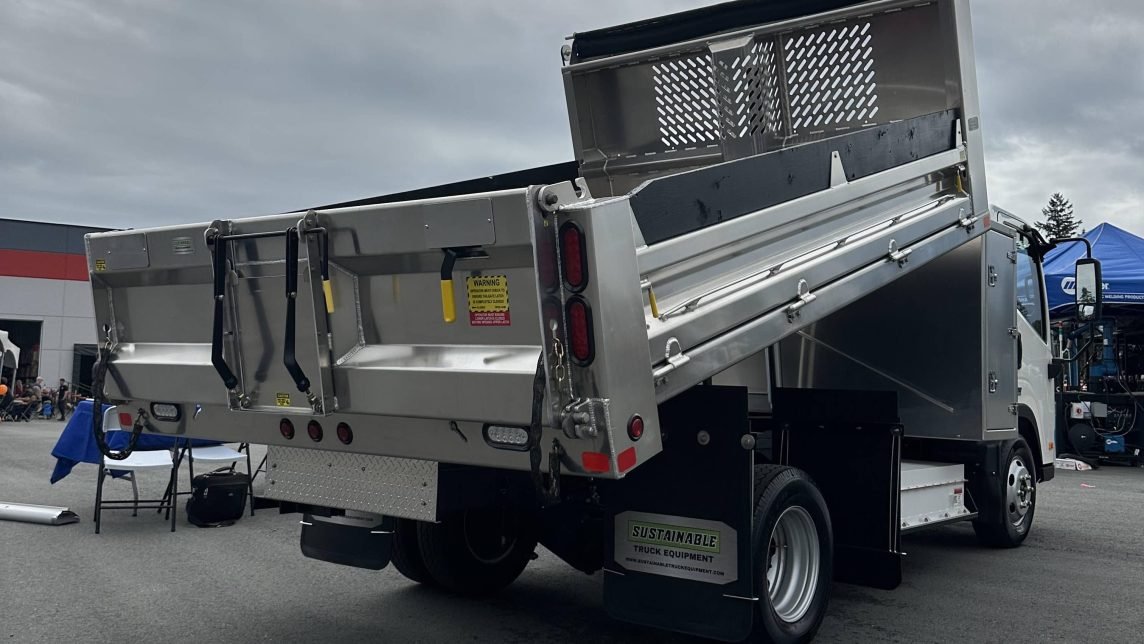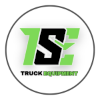Comprehensive Guide to Government Grants for EV Chargers, EV Trucks, and Sustainability in Canada
The push towards sustainability and reducing carbon emissions has led to increased interest in clean energy work trucks. To support this transition, various government grants and incentives are available to help offset the costs of purchasing these eco-friendly vehicles. This comprehensive guide explores the different government grants available in Canada for purchasing clean energy work trucks, providing valuable information and resources to help businesses take advantage of these opportunities.
Federal Government Grants and Incentives
Incentives for Zero-Emission Vehicles (iZEV) Program
The iZEV Program offers rebates for businesses and individuals purchasing or leasing eligible zero-emission vehicles (ZEVs), including electric and hydrogen fuel cell trucks.
Rebate Amount: Up to $5,000 for eligible light-duty vehicles.
Eligibility: Applies to new ZEVs listed on the program’s eligibility list.
How to Apply: The rebate is applied at the point of sale by the dealership.
Green Freight Assessment Program (GFAP)
The GFAP provides funding for assessments and retrofits that improve fuel efficiency and reduce emissions from freight transportation.
Funding Amount: Covers up to 50% of assessment costs and up to 50% of retrofit costs, with a maximum of $100,000.
Eligibility: Open to companies in the freight transportation sector.
How to Apply: Applications are submitted through the program’s website.
Incentives for Medium- and Heavy-Duty Zero-Emission Vehicles (iMHZEV) Program
The iMHZEV Program offers purchase incentives for medium- and heavy-duty zero-emission vehicles.
Incentive Amount: Varies based on vehicle weight class, up to $200,000 per vehicle.
Eligibility: Available to businesses, organizations, and municipalities purchasing eligible vehicles.
How to Apply: Applications are submitted through the program’s portal.
Provincial and Territorial Grants and Incentives
CleanBC Go Electric Program
British Columbia’s CleanBC Go Electric Program offers incentives for businesses purchasing medium- and heavy-duty electric vehicles (EVs).
Incentive Amount: Up to $100,000 per vehicle, depending on the type and class of the vehicle.
Eligibility: Available to businesses, non-profits, and local governments.
How to Apply: Applications are submitted online through the program’s portal.
CleanBC Commercial Vehicle Pilots (CVP) Program
The CVP Program provides funding for businesses to pilot and demonstrate the use of zero-emission commercial vehicles.
Funding Amount: Up to 33% of total project costs, with a maximum of $500,000 per project.
Eligibility: Open to businesses and organizations in BC.
How to Apply: Applications are submitted through the program’s portal.
Electric and Hydrogen Vehicle Incentive Program
Ontario offers incentives for the purchase of electric and hydrogen fuel cell vehicles, including commercial trucks.
Incentive Amount: Varies by vehicle type and class.
Eligibility: Open to businesses and individuals purchasing eligible vehicles.
How to Apply: Incentives are applied at the point of sale by the dealership.
Roulez vert Program
Quebec’s Roulez vert Program provides rebates for the purchase of electric and plug-in hybrid vehicles, including work trucks.
Rebate Amount: Up to $8,000 for eligible vehicles.
Eligibility: Available to businesses and individuals purchasing eligible vehicles.
How to Apply: Rebates are applied at the point of sale by the dealership.
CleanBC Heavy-duty Vehicle Efficiency Program
British Columbia’s CleanBC Heavy-duty Vehicle Efficiency Program supports businesses in improving the efficiency of their heavy-duty vehicles through upgrades and assessments.
Funding Amount: Up to $20,000 per vehicle for efficiency upgrades.
Eligibility: Open to businesses operating heavy-duty vehicles in BC.
How to Apply: Applications are submitted through the program’s portal.
Indigenous Grants and Incentives
Indigenous Community-Based Climate Monitoring Program
This program supports Indigenous communities in climate monitoring and adaptation projects, which can include transitioning to zero-emission vehicles.
Funding Amount: Varies based on project scope.
Eligibility: Open to Indigenous communities and organizations.
How to Apply: Applications are submitted through the program’s portal.
Clean Energy for Rural and Remote Communities Program
This program provides funding for clean energy projects, including the adoption of EVs and related infrastructure, in rural and remote Indigenous communities.
Funding Amount: Varies based on project scope.
Eligibility: Open to Indigenous communities and organizations.
How to Apply: Applications are submitted through the program’s portal.
Tips for Applying for Grants
1. Research Eligibility Requirements: Each grant has specific eligibility criteria. Ensure that your business and the vehicle you intend to purchase meet these requirements before applying.
2. Prepare Necessary Documentation: Gather all required documents, such as proof of purchase, vehicle specifications, and business registration details.
3. Stay Updated: Grant programs and incentive amounts can change. Regularly check government websites for the latest information and deadlines.
4. Leverage Multiple Programs: In some cases, you can combine federal, provincial, and municipal grants to maximize financial support for your clean energy work truck purchase.
Conclusion
Government grants and incentives play a crucial role in promoting the adoption of clean energy work trucks in Canada. By taking advantage of federal, provincial, and municipal programs, businesses can significantly reduce the cost of transitioning to eco-friendly vehicles. This guide provides a comprehensive overview of available grants and practical tips for successfully applying for these incentives. Embracing clean energy trucks not only contributes to environmental sustainability but also enhances operational efficiency and reduces long-term costs.
Disclosure: Grants and rebates can be changed or removed without notice. The information provided here is to help you start your own research and is not meant to advise or direct you in any way.

